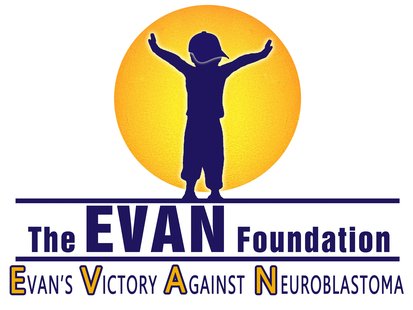Phase I trial of ALK inhibitor Lorlatinib
| Study name | Phase 1/2 study of PF-06463922, an oral small molecule inhibitor of ALK/ROS1, for patients with ALK-driven relapsed or refractory neuroblastoma |
| Study type | Phase I clinical trial |
| Principal investigator(s) | Prof Louis Chesler, Dr Yael Mosse, Dr Araz Marachelian |
| Institutions | Children's Hospital Los Angeles, Children's Hospital of Philadelphia, The Institute of Cancer Research (ICR) |
| Partners | Band of Parents, Children’s Neuroblastoma Cancer Foundation, Evan’s Victory Against Neuroblastoma Foundation, Solving Kids’ Cancer US, The Catherine Elizabeth Blair Memorial Foundation, The Ronan Thompson Foundation, Wade’s Army |
| Total awarded | $400,000 |
| Solving Kids’ Cancer UK contribution | £60,000 |
Overview
Targeting specific genes has proved a successful treatment method in many adult cancers, but less so in childhood cancers as there are fewer targets identified. A mutation in the ALK gene is one of these targets. Around 15% of children with neuroblastoma show this mutated gene at diagnosis, and about 20% at relapse. Recent research has shown that those with ALK mutations have a poorer prognosis, with the survival rate being 20-25% lower than for those without these mutations.
Current treatments targeting ALK mutations in other cancers have not shown significant efficacy against neuroblastoma, due to the uniqueness of the mutations and acquired drug resistance. Researchers have discovered the cause of resistance in this type of neuroblastoma and have produced a ground-breaking new drug to overcome it. Lorlatinib has shown significant results in lab-based trials using patient-derived mouse models, even against the most resistant cell lines. The drug also passes the blood-brain barrier, vital in the treatment of highest-risk patients.
This phase I trial will look at Lorlatinib as both a single agent and in combination with chemotherapy in ALK positive patients. The primary aim will be to identify the safe and appropriate dose to move forward in further trials.
Impact
If this trial is successful, this would be a significant step in moving targeted therapies into frontline treatment. Lorlatinib is also being introduced into Phase III frontline trials in Europe and North America through the TITAN trial that we funded in 2018. Bringing this promising new treatment into clinics could significantly improve the prognosis for children with ALK positive neuroblastoma.
"Lorlatinib has shown dramatic results in the lab against ALK+ neuroblastoma tumours in mice. If this trial proves successful, we expect the drug to quickly become part of frontline therapy in children with ALK-driven neuroblastoma – which is a tremendous accomplishment in cancer research, overall."
Dr Yael Mosse, Children's Hospital of Philadelphia







